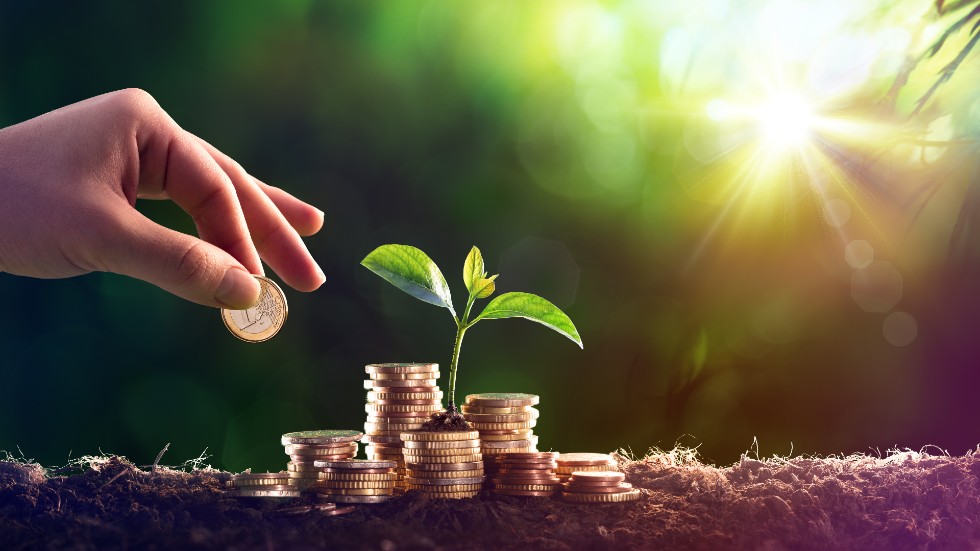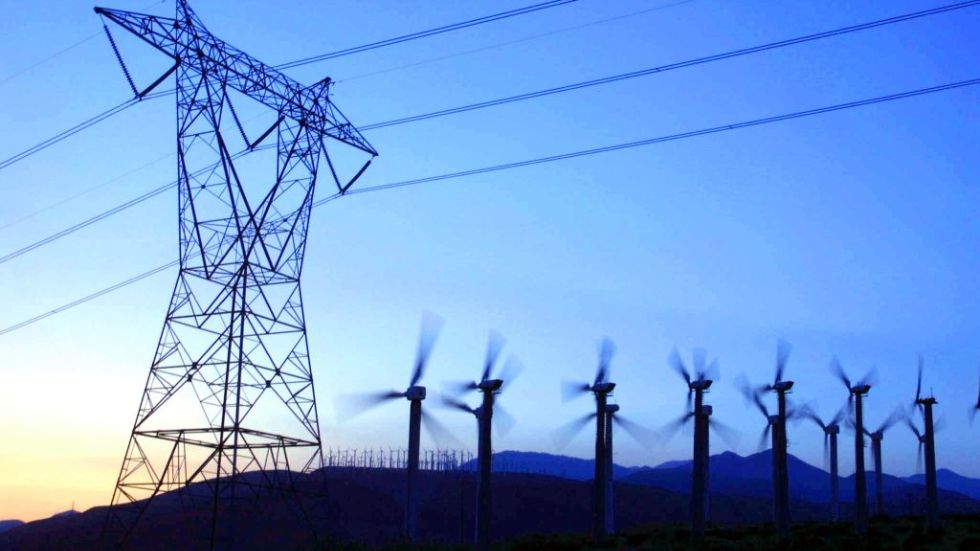Equilibrium/Sustainability — Presented by Altria — We’re falling behind in race for net zero, key energy agency says
Today is Wednesday. Welcome to Equilibrium, a newsletter that tracks the growing global battle over the future of sustainability. Subscribe here: digital-staging.thehill.com/newsletter-signup.
Current commitments to cut greenhouse gases would only reduce emissions by 40 percent by midcentury — and that is only if countries stick to their pledges, according to a new report by the International Energy Agency (IEA).
Although renewables are the cheapest options in many markets, “a large rebound in coal and oil use” has occurred over the past year, because only one-third of the public investment needed to “jolt the energy system onto a new set of rails” has materialized, the study found. This means that a new energy economy is struggling to emerge, while the old one is still clinging to its ankles.
That struggle should spur governments to give “a clear and unmistakable signal that they are committed to rapidly scaling up the clean and resilient technologies of the future,” IEA director Fatih Birol said in a statement.
It’s a wonky Wednesday here at Equilibrium, and we’re delving deep into the sustainability implications of two key nitty-gritty areas that underlie how everything else works: the financial system and local power infrastructure.
For Equilibrium, we are Saul Elbein and Sharon Udasin. Please send tips or comments to Saul at selbein@digital-staging.thehill.com or Sharon at sudasin@digital-staging.thehill.com. Follow us on Twitter: @saul_elbein and @sharonudasin.
Let’s get to it.
To avoid a climate-linked collapse of the financial sector, regulators must act: report

Simply requiring banks to disclose their climate risk won’t be enough to protect the financial system from potential collapse, according to a new report by advocacy groups Public Citizen and Americans for Financial Reform.
Instead, regulators must require banks to take actions that may be outside their managers short-term interest, but could help society as a whole avoid a collapse similar to the 2008 financial crisis, report coauthor Yevgeny Shrago of Public Citizen told Equilibrium.
First steps: Next week, the Financial Stability Oversight Council (FSOC) is expected to release its report on how to insulate America’s financial system from the impacts of climate change, as mandated in a May executive order from President Biden.
In that report, scheduled to be released next week, Treasury Secretary Janet Yellen is expected to recommend some form of mandatory climate risk disclosure. Yellen also serves as chair of the FSOC.
What’s climate risk disclosure, again?. It’s the idea that banks and publicly traded companies should notify investors and regulators about how exposed they are to the impacts of climate change, and the potential consequences of a rapid loss of confidence in fossil fuels.
But in a financial system plagued by short-term thinking, disclosure alone is not enough, said report co-author Yevgeny Shrago of Public Citizen.
Avoiding ‘fire sale’ risks: The Biden Administration has set a goal of zero net emissions by 2050, which is just one in a swell of movement in industry and finance away from fossil fuels that, at some unknown point, could reach an unexpected tipping point, Shrago said.
“If we need to stop burning fossil fuels by 2050, you don’t want to own them in 2049, and if not in 2049, then probably not in 2048, and so on,” he added. A sudden loss in confidence could spread in an “Emperor’s New Clothes’ moment” that would prove disastrous to an unprepared system, according to Shrago.
Why isn’t it enough to just to tell people that risk is there? Because as the 2008 crash proved, it’s often in no one’s short term financial interest to take the steps that help protect the larger system.
The solution in 2008 wasn’t just “more disclosure, it was more federal oversight of risk-taking,” Shrago said.
So what do they want regulators to do? First, to make sure all banks have a complete picture about the risks they’re exposed to, and the steps they’re taking to become more resilient.
Though disclosure alone isn’t enough, Shrago sees it as the foundation for any larger regulatory scheme, and which Public Citizen and Americans for Financial Reform believe must encompass a company’s emissions all along the supply chain.
In the case of banks, that would mean disclosing not only their operating emissions — from business travel, air conditioning and the like — but the emissions they generate by financing fossil fuel companies.
Why? Because most end-users aren’t really deciding whether to burn coal or use windmills for their electricity: that decision has been made long before they turn on the light.
Looking at just a bank’s own emissions ”ignores the causation: the key enabling role that fossil fuel financing and production play in the emissions ecosystem,” Shrago said.
What then? The authors want to see regulators make banks subject their portfolios to “climate stress tests,” or the simulation of various disaster scenarios, like extreme weather events or a sudden loss of confidence in fossil fuels, and begin to take steps to become more resilient.
For example, if they are going to continue investing in fossil fuels, banks might defray that risk with greater investment in renewables, to reduce their vulnerability to “transition risk.”
Last words: To avoid a situation in which the fossil fuel economy pops like a bubble, regulators need to “manage that decline,” Shrago said.
A MESSAGE FROM ALTRIA
Altria’s companies are leading the way in moving adult smokers away from cigarettes – by taking action to transition millions towards potentially less harmful choices. Learn how at Altria.com.
Collectives seek to lower cost of clean energy, offer choice at local level
 Nonprofit public agencies that grant communities collective control over their power sources are providing cheaper renewable energy to more people — at least, in those few states where they are authorized to operate.
Nonprofit public agencies that grant communities collective control over their power sources are providing cheaper renewable energy to more people — at least, in those few states where they are authorized to operate. One such agency is East Bay Community Energy (EBCE), one of California’s growing number of Community Choice Aggregators (CCAs).
A what now? These are groups which pair with local governments to purchase electricity on behalf of retail electric company customers in a sort of buyer’s club. The idea is to lump together several retail electricity accounts to obtain wholesale prices, and then serve as the default electricity provider in certain areas.
Rooted in local activism: Dianne Martinez, the mayor of Emeryville, Calif., and the chair of EBCE’s board of directors, said the idea was surfaced locally by residents at an Alameda County Board of Supervisors meeting, who ultimately provided a startup loan.
“The way that our CCA was born was very much out of activism,” Martinez said.
As of 2017, a National Renewable Energy Laboratory (NREL) report estimated that about 750 aggregators were serving about 5 million customers in eight states: California, Illinois, Massachusetts, New Jersey, New York, Ohio, Rhode Island and Virginia.
But CCAs aren’t permitted everywhere: They are only allowed to operate in states that “have enabling legislation as a gatekeeper,” according to Jenny Heeter, from NREL’s Strategic Energy Analysis Center.
That involves obtaining voter approval and ensuring that local governments have the infrastructure and contracting capacity to procure energy, Heeter said.
Most U.S. states have traditional utility markets, in which a monopoly utility controls most of the territory — which makes the passage of that requisite legislation unlikely, said Eric O’Shaughnessy, an independent renewable energy research consultant who co-authored the NREL report with Heeter.
Cleaner energy, at lower cost: EBCE launched in 2018 with the goal of providing more renewable energy at more competitive rates, in a measure that relied on the participation of Alameda County and 11 of its cities — which include Emeryville, Berkeley and Oakland.
EBCE says its customers are saving a collective amount of nearly $10 million annually in comparison to what they would have paid Pacific Gas and Electric, a traditional utility. Unlike PG&E, EBCE buys most of its power from clean sources such as wind, solar and hydropower — selling that power to customers at low rates and investing earnings back into the communities.
“We can benefit everyone in our communities with cleaner air, and more hope for our environment and put those jobs right back into our local communities,” Martinez said.
MAKING RENEWABLES ‘AFFORDABLE AND ACCESSIBLE TO EVERYONE’
Bringing green power to disadvantaged communities: Similarly, California’s first Community Choice Aggregator, MCE, focuses on providing affordable clean energy to underserved communities.
MCE spans four counties — Contra Costa, Napa, Marin and Solano — and also sources most of its power from renewables, according to the agency. It says its customers have saved more than $68 million since its 2010 launch.
“It’s really our goal to make clean energy affordable and accessible to everyone,” said Dawn Weisz, CEO of MCE. “Communities of color and economically disadvantaged populations and other marginalized communities often receive the first and the worst impacts of climate change and fossil fuel pollution.”
MCE and EBCE have discount programs available to qualifying lower-income individuals, which supply 100 percent renewable power to residents of disadvantaged communities.
A group effort: Both MCE and EBCE are now members of California Community Power, a Joint Powers Agency that includes 10 such CCAs, which Martinez says will increase collective buying power and lead to larger discounts.
And because CCAs operate on an “opt out,” rather than an “opt in,” model, they provide Californian customers with an instant convenience in which they are “buying 60 percent renewables” with no additional effort, said O’Shaughnessy, the energy research consultant.
Last words: “CCAs in California are absolutely more ambitious in their targets than the state and utility was,” O’Shaughnessy said. “So much of California now is third-party CCAs that the idea of pulling the state target forward really matters.”
To read the full story, please click here.
A MESSAGE FROM ALTRIA
Altria’s companies are leading the way in moving adult smokers away from cigarettes – by taking action to transition millions towards potentially less harmful choices. Learn how at Altria.com.
World Wednesday

Putin blames U.S., in part, for gas shortages in Europe
- Russian President Vladimir Putin said that the U.S. is partly to blame for the natural gas shortages currently rocking Europe, The Hill reported.
- Putin said that while European countries also share responsibility for the shortages, the U.S.’s decrease in supplies have been “the cause of panic,” in an interview with CNBC on Wednesday.
- “You see, the problem does not consist in us, it consists in the European side, because, first, we know that the wind farms did not work during summer because of the weather, everyone knows that,” Putin told CNBC. “Moreover, the Europeans did not pump enough gas into their underground gas facilities … and the supplies to Europe have decreased from other regions of the world,” Putin added.
- “So we have increased our supplies but others, including the U.S., have reduced their supplies and this is the cause of the panic,” he said.
Sister pig farmers call upon British prime minister to loosen immigration rules
- Two sisters who operate a pig farm in northeastern England are demanding that Prime Minister Boris Johnson relax the strict immigration rules that apply to butchers — or risk seeing the pork industry collapse, Reuters reported.
- A combination of Brexit and coronavirus pandemic restrictions have led to an exodus of Eastern European meat sector workers, causing a backup of pigs in Great Britain’s barns and fields, according to Reuters.
- The sisters, Kate Morgan and Vicky Scott, told Reuters that a 25 percent capacity cut at their abattoir has led to 5,000 pigs stranded — leading many farmers to begin culling their pigs.
- “The pressure is like pressure we’ve never had before, emotionally it’s absolutely draining, financially it’s crippling,” Scott told Reuters. “We’re in a fairly bad place right now.”
For deported Haitians, no clear option but leaving again
- Haitians deported from the U.S. border last month say they are struggling to survive in the homeland they left behind, The Guardian reported.
- “It’s no secret that Haiti is poor and unsafe, but I didn’t know it had gotten this bad,” Reynold Joseph told The Guardian, as drivers queued for petrol around the corner and shots rang in the distance.
- Joseph and his wife spent five years in Chile before he attempted to make it to the U.S., and dreams of leaving again.
- “But we spent all our savings trying to get into the US, so this is our life now while we save to try and get out,” he said.
And ICYMI: Please read our interview with Erin Brockovich, the stiletto-strutting single mom whose legal crusade became a Hollywood blockbuster more than two decades ago — and who isn’t afraid to call out officials for “ass-backwards” environmental policies.
Please visit The Hill’s sustainability section online for the web version of this newsletter and more stories. We’ll see you on Thursday.
{mosads}
Copyright 2024 Nexstar Media Inc. All rights reserved. This material may not be published, broadcast, rewritten, or redistributed..


















